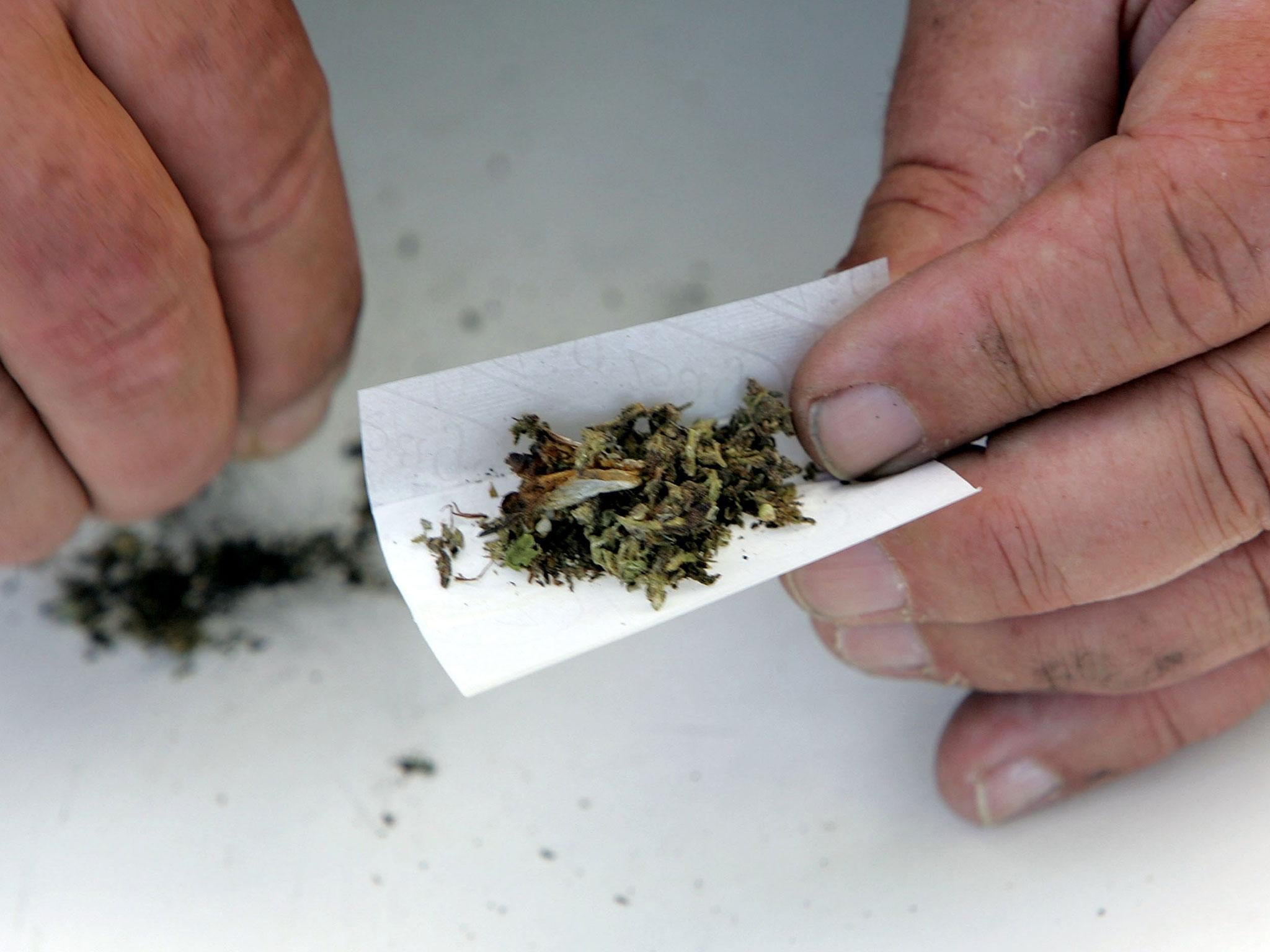German police group calls for complete cannabis decriminalisation
'In the history of mankind there has never been a society without the use of drugs. This is something that has to be accepted'

Your support helps us to tell the story
From reproductive rights to climate change to Big Tech, The Independent is on the ground when the story is developing. Whether it's investigating the financials of Elon Musk's pro-Trump PAC or producing our latest documentary, 'The A Word', which shines a light on the American women fighting for reproductive rights, we know how important it is to parse out the facts from the messaging.
At such a critical moment in US history, we need reporters on the ground. Your donation allows us to keep sending journalists to speak to both sides of the story.
The Independent is trusted by Americans across the entire political spectrum. And unlike many other quality news outlets, we choose not to lock Americans out of our reporting and analysis with paywalls. We believe quality journalism should be available to everyone, paid for by those who can afford it.
Your support makes all the difference.The consumption of cannabis should be decriminalised in Germany, according to a police officers organisation in the country.
The head of the BDK organisation or The Association of German Criminal Officers said that the group favours a "complete decriminalisation of cannabis consumers".
Andre Schulz told German tabloid Bild that the current system prohibiting marijuana use stigmatises people and "allows criminal careers to start."
He argued that "the prohibition of cannabis was, viewed historically, arbitrary" and is "neither intelligent nor expeident."
He added: “In the history of mankind there has never been a society without the use of drugs. This is something that has to be accepted. My prediction is cannabis will not be banned for long in Germany.”
However, Mr Schulz insisted that the drug should remain off-limits for drivers.
Germany does allow some patients to use marijuana as a prescription medication, but officials have made it clear that recreational use will not be legalised.
Police officers in the UK are also calling for the decriminalisation of cannabis use, Steve Rolles, a senior policy analyst on drug policy at Transform, told The Independent.
"It's always welcome to hear calls for drug welfare reform coming from the police, because they have the authority of frontline experience of the failure of the war on drugs," he said.
"What's happening in Germany is also a case of what's happening in the UK, where we're seeing increasing numbers of serving police questioning the status quo and calling for a debate on reforms.
"Several police authorities are putting in place de facto decriminalisation schemes, where people caught in possession of cannabis aren't prosecuted but are diverted into education or treatment programmes."
He added: "If we want to deal with the problem of the illegal market we need to legalise and responsibly regulate the production and supply of cannabis and other drugs as well, and there are many police forces making that argument.
"It's time for the Government in the UK to listen to those voices in the police and other experts and begin a meaningful debate on legalisation in the UK as well."
The call comes after research found the legalisation of marijuana for medical purposes led to a significant reduction in violent crime in several US states bordering Mexico.
The study, published in The Economic Journal, found the rate of violent crime, including robberies, murders and aggravated assaults, fell by 12.5 per cent in counties close to the border following the introduction of medical marijuana laws (MMLs).
Nine US states and the District of Columbia have legalised the recreational use of marijuana, while dozens of others permit its medicinal use.
Thousands of Californians will have marijuana offences wiped from their records after voters eliminated criminal penalties in 2016, it was recently reported.
However, earlier this month, the US Justice Department rescinded an Obama administration policy which eased enforcement of federal marijuana laws in states that legalised the drug.
The move instead gives federal prosecutors wide latitude to pursue criminal charges and have spurred accusations of betrayal from states which have allowed recreational cannabis use.
Join our commenting forum
Join thought-provoking conversations, follow other Independent readers and see their replies
Comments